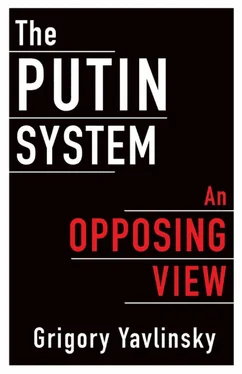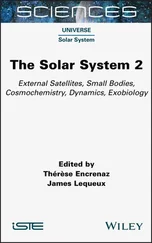Another factor that links corruption to the export of capital is that, as the stratum of rich or just very affluent Russians emerges and expands, their yearning for full integration into the global elite, focused around the so-called West, is growing and will continue to grow. This is yet another consequence of Russian capitalism’s peripheral position. This trend is a given and it is irreversible. Under globalization, children of successful elites from every region of the developing world—from India to Africa to Latin America—acquire property in the United States and Western Europe and park there a large part of their family assets. This goes on in spite of the psychological resistance and even active rejection of the West in the minds of the first generation of wealthy elites; many of their members would rather maintain their cultural and physical independence from the Western world that is foreign and alien to them. But, with generational change, and in many cases even without it, the realities of managing massive amounts of wealth take over, and even powerful ideological barriers (such as political Islam in Arab countries) are powerless to contain these large assets and their owners in their places of origin.
It is therefore unsurprising that the Kremlin’s widely advertised campaign to promote the “nationalization” of Russia’s elites was limited from the outset and is lacking in drive and persistence. Unlike many other government initiatives (some even more inappropriate and senseless than this one), this campaign was the only one to face outright objections and effective opposition from among the elites from the outset. This reaction significantly tempered the initial enthusiasm of some pro-government public figures who had eagerly sought to be at the forefront of this campaign. Moreover, data on capital outflow for the year 2013 indicated that the measures taken to compel high-ranking officials to close their bank accounts abroad went hand in hand with an apparent increase in the rate of capital export from Russia. (Unfortunately, in the statistical data it is practically impossible to separate export of capital by Russian citizens from repatriation of assets from Russia by citizens of other countries; therefore, we can only operate with hypotheses that have a high probability of being true.)
Yet the most important feature of a peripheral-type corruption is not the forms that it takes but rather its scale. In spite of all the publicity around corruption scandals that from time to time shake the global capitalist core—the United States and countries of Western Europe—this corruption is notably still so-called upper-level corruption; it mainly involves high-ranking government officials taking advantage of their position for personal benefit. However, the corruption that we see in the West almost never expands to the agencies that these higher-level corrupt officials supervise, and it does not transform these agencies into criminal enterprises as such—that is, the agencies do not function as a result of an existing opportunity for corruption-derived gain and essentially for the sake of this gain.
Moreover, the very publicity around these scandals in the West is evidence that those societies and governments have within them the means to crack down on corrupt activities of the highest-ranking officials before they manage to pervert the agencies that they manage to such an extent that they cease to perform the requisite functions of governance. These internal checks on the extent of corruption may be based on competition among agencies and on the unwillingness of the members of the political class to let their colleagues (competitors) enrich themselves by violating the rules of this competition, but this is beside the point.
There is one key distinction between corruption that is still bearable and corruption that is irreparably destructive. Contrary to the widespread assumption, so-called everyday corruption destroys governance much faster and to a greater extent than its upper-level variety. This is because everyday corruption demonstrates that the authorities have lost control of the operation of government machinery, or at least of its key parts. Therefore, this type of corruption annihilates citizens’ trust in government institutions in their entirety.
Indeed, normalcy in the everyday life of the people and in the operation of businesses depends upon the lower and the middle ranks of government agencies. And if these public servants perform their functions well, the fact that these agencies’ top brass may pocket more than they are entitled to does not excessively disorganize everyday life in the country. If police are fighting crime, if tax agencies provide revenues to the government, if those in charge of holding government agencies accountable ensure compliance with the laws and regulations, and if public health-care providers and public-school teachers are treating people and teaching kids rather than extorting bribes and donations, then even significant power abuse in the highest echelons of the government is not so much of a catastrophe for the nation.
However, if upper-level abuses are not cut short by periodic investigations and tough punishment for those found guilty, then the rot of corruption quickly spreads along the entire hierarchy of government. Its agencies can easily morph from public institutions into criminal corporations whose only goal and reason for existence is the extraction and maximization of personal gain through their monopolistic control over specific aspects of everyday life in the country. Under these circumstances, the agencies either do not perform their stated functions at all or they do it only pro forma and in their “spare time,” which is bound to impact the effectiveness of government in its entirety.
Under such circumstances, too, the character of the state itself is greatly altered. It changes from being an institution with a public purpose, irreducible to securing the well-being of the ruling circle or even of a wider circle of privileged groups and strata of society, into an institution that exclusively serves the goals and objectives of a specific group of people. In this case, no one any longer expects or demands in earnest that individual agencies perform any public service tasks. These agencies now have to do nothing but fulfill their obligations with regard to other, more powerful groups of individuals. Meanwhile, all of these agencies’ resources in excess of those needed to fulfill these obligations are viewed as individuals’ property, which they are free to use toward their private interests and at their discretion.
If, over the course of its historical development, a given society has produced a type of government that we can call modern—an institution serving the nation as a whole and undertaking tasks other than maintaining the dominance of one group of people, however numerous—then corruption, if allowed to overstep certain boundaries, throws the state back to a premodern version of itself. Such a premodern government is an aggregate sum of corporate units wielding administrative power and organized by territory, by industry, and sometimes by function. Each of these corporate units accomplishes the tasks related to its own survival and prosperity while also fulfilling certain obligations with regard to corporations possessing more resources and authority.
In today’s world, this type of state typically precludes the country from being a part of the advanced core of the world economy and of global capitalism. Nevertheless, this type of state may exist for a long time on the periphery of the world economy without coming into an acute conflict with the objective needs of its peripheral economy or with the needs of a society whose condition corresponds to this kind of an economy.
Turning from our general points to the case of the present-day authoritarianism in Russia, I believe we can confidently state that, regardless of its distinctive country-specific features, we are witnessing the country’s regression into precisely such a premodern state. And corruption plays a decisive role in this process. Tolerance for corruption on the part of the government and society has been a fixture across all stages of the building of post-Soviet capitalism. Yet this corruption also exhibits clear-cut dynamics in its development. These dynamics may not be very visible in the short term, but they are quite pronounced over the long haul, and it has already resulted in a long-term weakening in Russia’s government agencies’ performance of the basic functions of the modern-type state. These functions include, among other things, ensuring that organizations and individuals at least formally comply with the law, protecting citizens from abuse and violence, ensuring that parties to contracts and agreements fulfill their terms, and providing the necessary minimum of government services to the public free of charge. It is true that the continuing erosion of these governance functions has not yet resulted in actual and complete paralysis. Yet it is hard to ignore the overall trend, and its simple extrapolation into the not-so-distant future gives us a clear picture of what lies ahead.
Читать дальше












